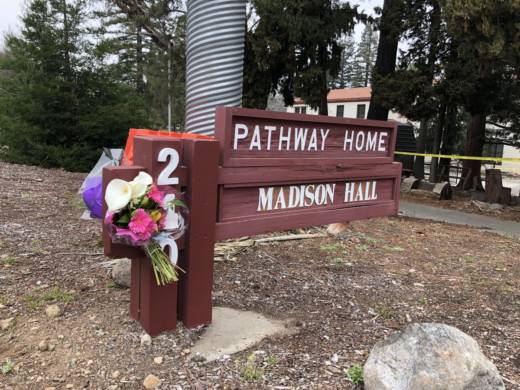Caldwell says she remembers a time when the center focused on specialized cognitive behavioral therapy for veterans from Iraq and Afghanistan who were facing acute post-traumatic stress disorder and traumatic brain injuries. That meant the residents would go through a four-month live-in program that utilized not just clinical therapy but holistic treatment like art therapy. Each veteran had their own individualized treatment plan and there were veterans from Iraq and Afghanistan, with similar experiences, who were peer counselors to the residents.
Founder and former executive director of Pathway Home, Fred Gusman, created this unique model of care that was gleaned from his experience as director of the National Center for PTSD at the VA Palo Alto Health Care System. He says the nonprofit was treating the most vulnerable veterans, so he created safeguards that started first with a thorough admission screening by three to five members of the staff, including a psychologist, social workers and himself.
"We made sure we would really know who we were taking," Gusman says. "We didn't take angels, but we did thorough background checks to make sure we could handle them."
But according to Pathway Home's federal tax forms, the center's operating budget was drastically reduced in the past few years, from nearly $1.2 million in 2014 to just over $450,000 in 2016.
The total number of employed individuals dropped significantly as well, from 20 in 2014 to just four in 2016. Caldwell was one of those job losses.
"The excuse I was given was funding," Caldwell says.
Yountville Mayor John Dunbar, who also serves on Pathway Home's board of directors, denies that the organization has financial issues and says, "We're actually in a strong financial position."
And Dunbar rejects the criticism of Pathway Home's new focus, calling it a "reset." But he acknowledged that the nonprofit doesn't treat the most traumatically impacted veterans anymore.
"Clinical support is expensive," Dunbar says.
Despite donations of nearly $1 million in 2014 and 2015, Pathway Home stopped the residential program in September 2015. Gusman remembers that period of time.
"The board discussed about streamlining the budget," Gusman says. "The staff and I were concerned if cuts would mean jeopardizing the quality of service and safety."
Gusman says he warned the board that if they couldn't offer the same level of care to the veterans, Pathway should close, or if the mission changed, the name should change.
"People will still come and get referred," Gusman says he told the board. "You might end up with a guy who's very difficult to deal with."
By the end of 2015, Gusman decided to retire.
The nonprofit reinvented and reopened the residential program a year later, in September 2016, according to Dorothy Salmon, a seven-year board member. Its new mission is now to help veterans who want to re-enter civilian life through college education or vocational training.
"Our goal is to showcase veterans who return home and want to re-integrate," Salmon says. But she says there is still clinical help.
Lauren Caldwell believes the men and women who did multiple tours in Iraq and Afghanistan need more help, like one man she worked with at Pathway Home when she was employed there.
"He had such bad PTSD, he was fearful of leaving his house," Caldwell says. Then, through treatment and the program, she was proud that he was able to go to a San Francisco Giants baseball game without any medication.
She doesn't think that Pathway Home was equipped to handle the veterans with acute cases of combat trauma. And Caldwell worries Pathway’s new direction means veterans with severe trauma, like shooter Albert Wong, have fewer places to seek help.
"We sent our guys over to combat, expected them to kill, and they’re supposed to just be normal and reintegrate into society," Caldwell says.
"It's just not realistic."
